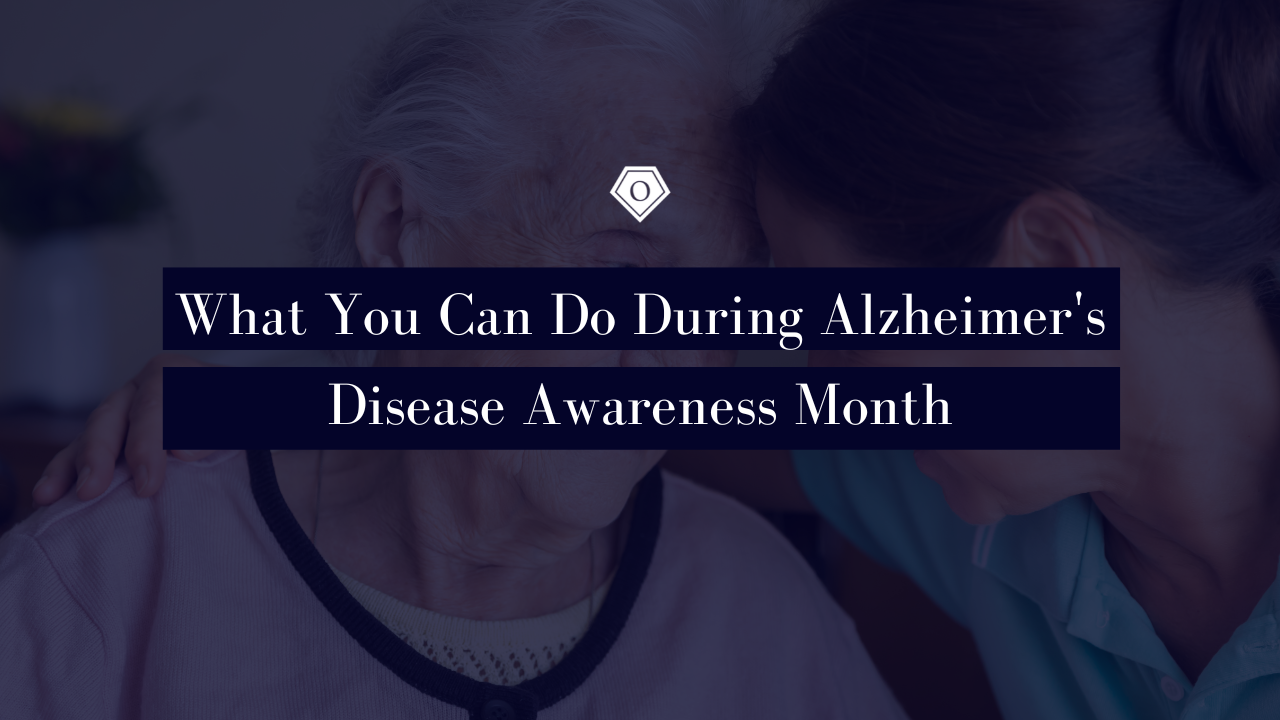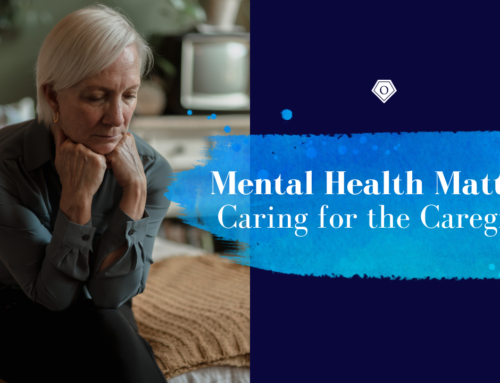National Alzheimer’s Month, observed throughout November, is a critical period dedicated to raising awareness and understanding of Alzheimer’s disease and related dementias.
Alzheimer’s disease is a debilitating neurodegenerative condition that predominantly affects the elderly population, characterized by a progressive and irreversible deterioration of cognitive abilities, memory, and behavior. This devastating disease is marked by memory loss, difficulties with problem-solving and decision-making, and personality changes. Alzheimer’s is caused by abnormal protein accumulations in the brain, which lead to the death of brain cells and the subsequent breakdown of cognitive function.
While age is the most significant risk factor, genetic predisposition and certain lifestyle factors can also influence the development of the disease. Presently, there is no cure for Alzheimer’s, making it an urgent focus of ongoing research, with treatment efforts aimed at managing symptoms, slowing disease progression, and providing support to individuals and their caregivers.
During this month, individuals, organizations, and communities come together to educate the public about the impact of Alzheimer’s on millions of lives, as well as the need for increased research, support, and care for those affected. It is a platform to share knowledge about the disease, promote early diagnosis, and reduce the stigma surrounding dementia. National Alzheimer’s Month also emphasizes the importance of supporting individuals with Alzheimer’s and their caregivers while advocating for advancements in treatment and potential cures. It encourages fundraising efforts, educational initiatives, and community engagement to create a world where Alzheimer’s is better understood, managed, and ultimately conquered.
How you can get involved and make a positive impact during this month:
Educate Yourself:
Take the time to learn more about Alzheimer’s disease, its symptoms, risk factors, and the impact it has on individuals and their families. Understanding the disease is the first step in raising awareness.
Share Information:
Use your social media platforms, personal blog, or other communication channels to share facts, statistics, and personal stories related to Alzheimer’s disease. Encourage your friends and followers to do the same.
Participate in Fundraising:
Many organizations dedicated to Alzheimer’s research and support services hold fundraising events during this month. Consider participating in a charity walk, run, or other fundraising activities to contribute to the cause.
Volunteer:
Offer your time and skills to local Alzheimer’s organizations and support groups. Volunteers are often needed to assist with events, provide support to caregivers, and help those affected by the disease.
Attend Events:
Check for local or virtual events, seminars, and conferences related to Alzheimer’s awareness. These events often feature experts, caregivers, and people living with Alzheimer’s who share their experiences and insights.
Wear Purple:
Purple is the official color of Alzheimer’s awareness. Wearing purple clothing or accessories can help spark conversations and draw attention to the cause.
Advocate for Research and Funding:
Write to your elected officials to advocate for increased funding for Alzheimer’s research and support services. You can also join advocacy groups focused on Alzheimer’s and dementia-related issues.
Support Caregivers:
Caregivers of individuals with Alzheimer’s face unique challenges and stress. Offer support to caregivers in your community, whether through a support group or simply by being a friend who listens.
Share Personal Stories:
If you or someone you know has been affected by Alzheimer’s, consider sharing your personal story. Sharing experiences can help reduce the stigma associated with the disease and provide support to others going through similar challenges.
Promote Memory-Enhancing Activities:
Encourage seniors and individuals of all ages to engage in activities that promote brain health, such as puzzles, reading, physical exercise, and social interaction.
Plan an Awareness Event:
If you’re passionate about the cause, consider organizing an Alzheimer’s awareness event in your community, workplace, or school.
Donate:
Contribute to Alzheimer’s organizations and research initiatives to support their efforts to find a cure and improve the lives of those affected.
Remember that Alzheimer’s Awareness Month is just the beginning. It’s essential to continue raising awareness and supporting the cause year-round. By participating in these activities, you can make a positive impact and help advance research, support, and understanding of Alzheimer’s disease.
More about Alzheimer’s…
Signs of Alzheimer’s disease:
Alzheimer’s disease is characterized by a range of cognitive and behavioral symptoms that typically develop slowly and worsen over time. Here are some common signs and symptoms associated with Alzheimer’s disease:
- Memory Loss: One of the most noticeable early signs is the inability to remember recently learned information, such as forgetting important dates or events, repeating questions, or relying on memory aids.
- Difficulty with Problem-Solving: Individuals with Alzheimer’s often have trouble with tasks that require planning, organizing, and problem-solving. This might include managing finances, following recipes, or solving puzzles.
- Confusion with Time and Place: People with Alzheimer’s can become disoriented and confused about time and place. They may lose track of dates, seasons, or the passage of time, and they might forget where they are or how they got there.
- Challenges with Language: Individuals may have difficulty finding the right words or following a conversation. They might struggle with vocabulary, repeat themselves, or have trouble understanding complex discussions.
- Poor Judgment: People with Alzheimer’s may exhibit poor judgment, making uncharacteristic decisions, such as falling for scams, giving away money, or neglecting personal hygiene.
- Changes in Mood and Personality: Alzheimer’s can lead to mood swings, irritability, anxiety, and depression. Individuals might become easily upset, withdraw from social activities, or exhibit uncharacteristic behaviors.
- Decreased Ability to Complete Familiar Tasks: Even routine tasks, such as getting dressed, cooking, or bathing, can become challenging for individuals with Alzheimer’s as the disease progresses.
- Misplacing Objects: Frequently misplacing items and being unable to retrace steps to find them is common in Alzheimer’s. Sometimes, they may accuse others of stealing their possessions.
- Social Withdrawal: People with Alzheimer’s may withdraw from social activities and hobbies they once enjoyed, often due to difficulties in cognition and communication.
- Impaired Decision-Making: Individuals may make poor decisions in terms of personal hygiene, safety, or finances.
- Changes in Vision and Spatial Perception: Alzheimer’s can affect an individual’s perception of distance and depth, which can lead to problems with balance and coordination.
It’s important to note that these symptoms can vary from person to person, and not everyone with Alzheimer’s will experience all of them. Additionally, the severity of these symptoms can differ depending on the stage of the disease. If you or someone you know is experiencing these signs, it is important to seek a medical evaluation and diagnosis for a comprehensive assessment. Early diagnosis allows for better management of the disease and access to available treatments and support services.
Stages of Alzheimer’s disease:
Alzheimer’s disease typically progresses through several stages, each marked by specific symptoms and changes in cognitive and functional abilities. It’s important to note that the progression and duration of these stages can vary from person to person. The stages of Alzheimer’s disease are often described as follows:
- Preclinical Stage: In the earliest stage, changes are occurring in the brain, but there are no noticeable symptoms. Alzheimer’s-related brain changes, such as the accumulation of beta-amyloid plaques and tau tangles, can be detected through brain imaging and biomarker tests. Individuals in this stage may function normally in their daily lives.
- Mild Cognitive Impairment (MCI) Due to Alzheimer’s: This stage is characterized by mild memory and cognitive deficits that are noticeable to the individual and, often, to close family and friends. It may involve difficulty with remembering names, recent events, or other cognitive tasks, but individuals can still manage their daily activities.
- Mild Alzheimer’s Disease: In this stage, the symptoms become more pronounced. Individuals may experience increased memory loss, confusion, and difficulties with language and problem-solving. They may have trouble organizing and planning, and they might start misplacing objects. While they can still perform daily tasks, they require more assistance and support.
- Moderate Alzheimer’s Disease: This stage is marked by a significant decline in cognitive and functional abilities. Individuals may struggle with basic self-care tasks like dressing and bathing. Behavioral and personality changes become more apparent, and they may become agitated, anxious, or even aggressive. Wandering and sleep disturbances are common.
- Severe Alzheimer’s Disease: In the final stage, individuals with Alzheimer’s require round-the-clock care and assistance. They often lose the ability to communicate coherently and recognize loved ones. Mobility may be severely impaired, and they may become bedridden. Basic functions like swallowing become compromised, making them susceptible to other health complications.
It’s essential to remember that not everyone with Alzheimer’s disease experiences all of these stages, and the progression can be uneven. Additionally, each individual’s experience is unique, and the rate of progression can vary. While there is no cure for Alzheimer’s disease, early diagnosis and interventions can help improve the quality of life for individuals and provide support for their caregivers.
Care and support services are essential throughout the various stages of the disease. Caregivers of individuals with Alzheimer’s disease face unique challenges and demands, and it’s crucial for them to seek and receive support.
How Alzheimer’s caregivers can access the help and support they need:
- Alzheimer’s Associations and Organizations: Organizations like the Alzheimer’s Association offer a wealth of resources and support services specifically tailored for caregivers. They provide information, helplines, local support groups, educational materials, and online communities to connect caregivers with one another.
- Support Groups: Joining a caregiver support group, whether in-person or online, can provide emotional support and valuable insights. These groups offer a safe space to share experiences, challenges, and coping strategies with others who understand your situation.
- Professional Help: Consider seeking assistance from a therapist or counselor who specializes in caregiving, aging, or Alzheimer’s-related issues. They can provide guidance and emotional support.
- Respite Care: Respite care services allow caregivers to take a break and recharge while someone else cares for their loved one with Alzheimer’s. This can be provided in-home or at a specialized facility.
- Adult Day Programs: Adult day programs offer a safe and stimulating environment for individuals with Alzheimer’s while providing caregivers with much-needed time to themselves.
- Home Health Services: Professional home health services can provide assistance with daily tasks and personal care for individuals with Alzheimer’s, reducing the caregiving burden. Click here to learn more.
- Legal and Financial Assistance: Consult with an attorney who specializes in elder law to ensure you have the necessary legal documents in place, such as a power of attorney and living will. Financial advisors can also help with planning for the costs of care.
- Social Services and Government Programs: Explore government programs and social services available to caregivers and individuals with Alzheimer’s, such as Medicaid, Medicare, and the National Family Caregiver Support Program.
- Educational Resources: Educate yourself about Alzheimer’s disease and caregiving through books, online courses, and educational workshops. Knowledge can help you better understand the condition and develop effective caregiving strategies.
- Family and Friends: Don’t hesitate to lean on your support network of family and friends. They can offer assistance with tasks, provide emotional support, and allow you some respite.
- Self-Care: Caregivers need to prioritize self-care to prevent burnout. Make time for activities you enjoy, maintain a healthy lifestyle, and seek regular medical check-ups.
- Technology: There are various apps and digital tools designed to assist caregivers with tracking medications, schedules, and health information. These tools can help manage caregiving responsibilities more efficiently.
Remember that seeking support is not a sign of weakness; it’s a proactive step to ensure you can continue providing the best care for your loved one with Alzheimer’s while maintaining your own well-being. Caregivers who take care of themselves are better equipped to handle the challenges of caring for someone with Alzheimer’s disease.






